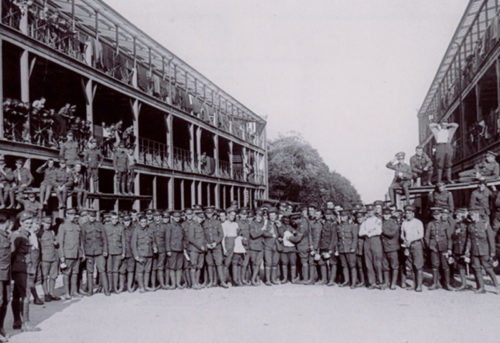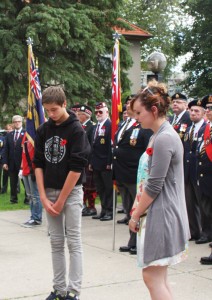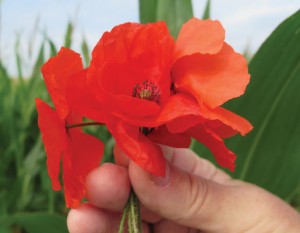
Pilgrimage to Turkey: Going back to Gallipoli
The Newfoundland Regiment was the only North American military unit to fight in Britain and France’s costly Gallipoli Campaign in the twilight of the Ottoman

The Newfoundland Regiment was the only North American military unit to fight in Britain and France’s costly Gallipoli Campaign in the twilight of the Ottoman

During a whirlwind visit to Cornwall, Ont., in mid-August, students from France took advantage of every opportunity to greet and thank Second World War veterans and

In July, pilgrims from across Canada visited battlefields, cemeteries and memorials in France, Belgium and the Netherlands “If yesterday was the longest day,” says Ed Pigeau,

The 70th anniversary of D-Day and the Battle of Normandy will introduce a new generation of Canadians to events that have long stirred the imaginations and collective memories of veterans and their children.
There will no doubt be extensive television coverage on June 6, centered on major Canadian commemorative events at the Juno Beach Centre in Courseulles-sur-Mer, but there will be much else to see and do in Normandy during June, July and August.

A century ago, Alex Wilson of Killam, Alta., won a watch at a carnival. It was in his pocket when he enlisted and during the Battle of Passchendaele when he was wounded.
The young stretcher-bearer returned to Canada with two things he loved—his bride, Leah Beatrice Jones who had nursed him, and the prized Elgin watch.
Silence reigns over the fields surrounding the Canadian National Vimy Memorial, about 175 kilometres north of Paris. The pockmarked battlefields where 100,000 Canadians fought 95 years ago have been softened by time, the slumped shoulders of the trenches clothed by grass and surrounded by spring-green forest. It is in stark contrast to the muddy no man’s land, water-filled shell craters and splintered stubs of trees that remained after the metallic rain of more than a million shells during the Battle of Vimy Ridge in April 1917.



Get the latest stories on military history, veterans issues and Canadian Armed Forces delivered to your inbox. PLUS receive ReaderPerks discounts!

| Cookie | Duration | Description |
|---|---|---|
| cookielawinfo-checkbox-analytics | 11 months | This cookie is set by GDPR Cookie Consent plugin. The cookie is used to store the user consent for the cookies in the category "Analytics". |
| cookielawinfo-checkbox-functional | 11 months | The cookie is set by GDPR cookie consent to record the user consent for the cookies in the category "Functional". |
| cookielawinfo-checkbox-necessary | 11 months | This cookie is set by GDPR Cookie Consent plugin. The cookies is used to store the user consent for the cookies in the category "Necessary". |
| cookielawinfo-checkbox-others | 11 months | This cookie is set by GDPR Cookie Consent plugin. The cookie is used to store the user consent for the cookies in the category "Other. |
| cookielawinfo-checkbox-performance | 11 months | This cookie is set by GDPR Cookie Consent plugin. The cookie is used to store the user consent for the cookies in the category "Performance". |
| viewed_cookie_policy | 11 months | The cookie is set by the GDPR Cookie Consent plugin and is used to store whether or not user has consented to the use of cookies. It does not store any personal data. |



Free e-book
An informative primer on Canada’s crucial role in the Normandy landing, June 6, 1944.